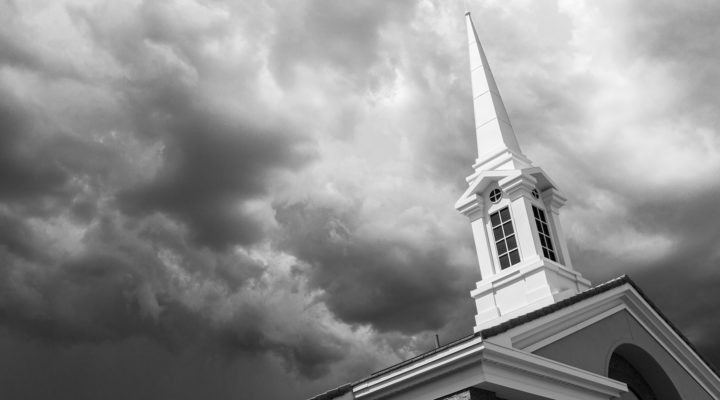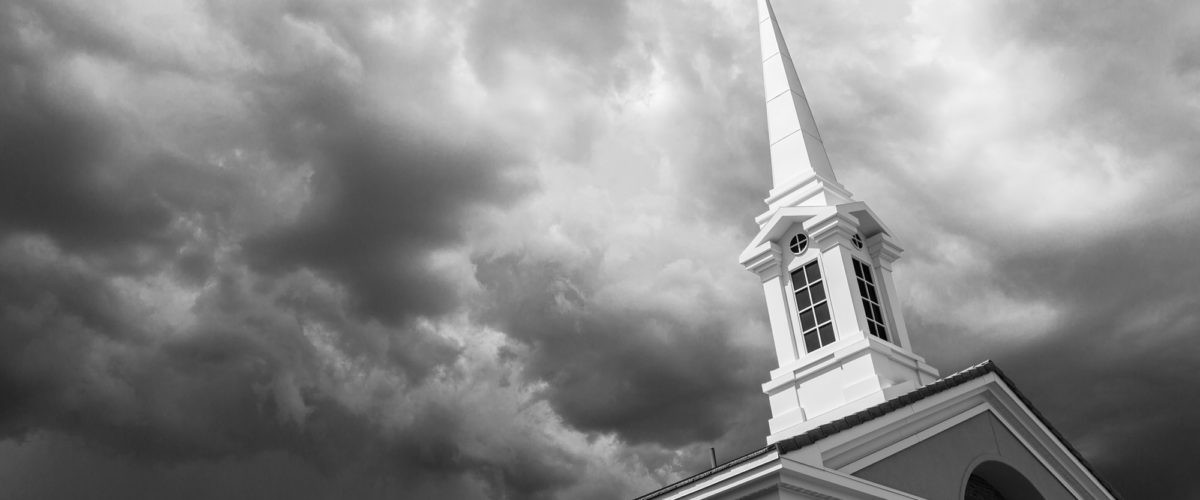Feb. 16-18 at Baylor University’s Truett Seminary, we convened our second national conversation about racism in the white church, “Time to Wake Up.” Although those attending were passionate about the program and online and social media comments before, during and after ran about 10-1 in favor of the work, I personally received a number of scathing comments via email, Twitter and my ghost phone (I no longer have a desk phone, only messages sent to email), and I heard that the president’s office and Truett Seminary also received their share of hateful messages.
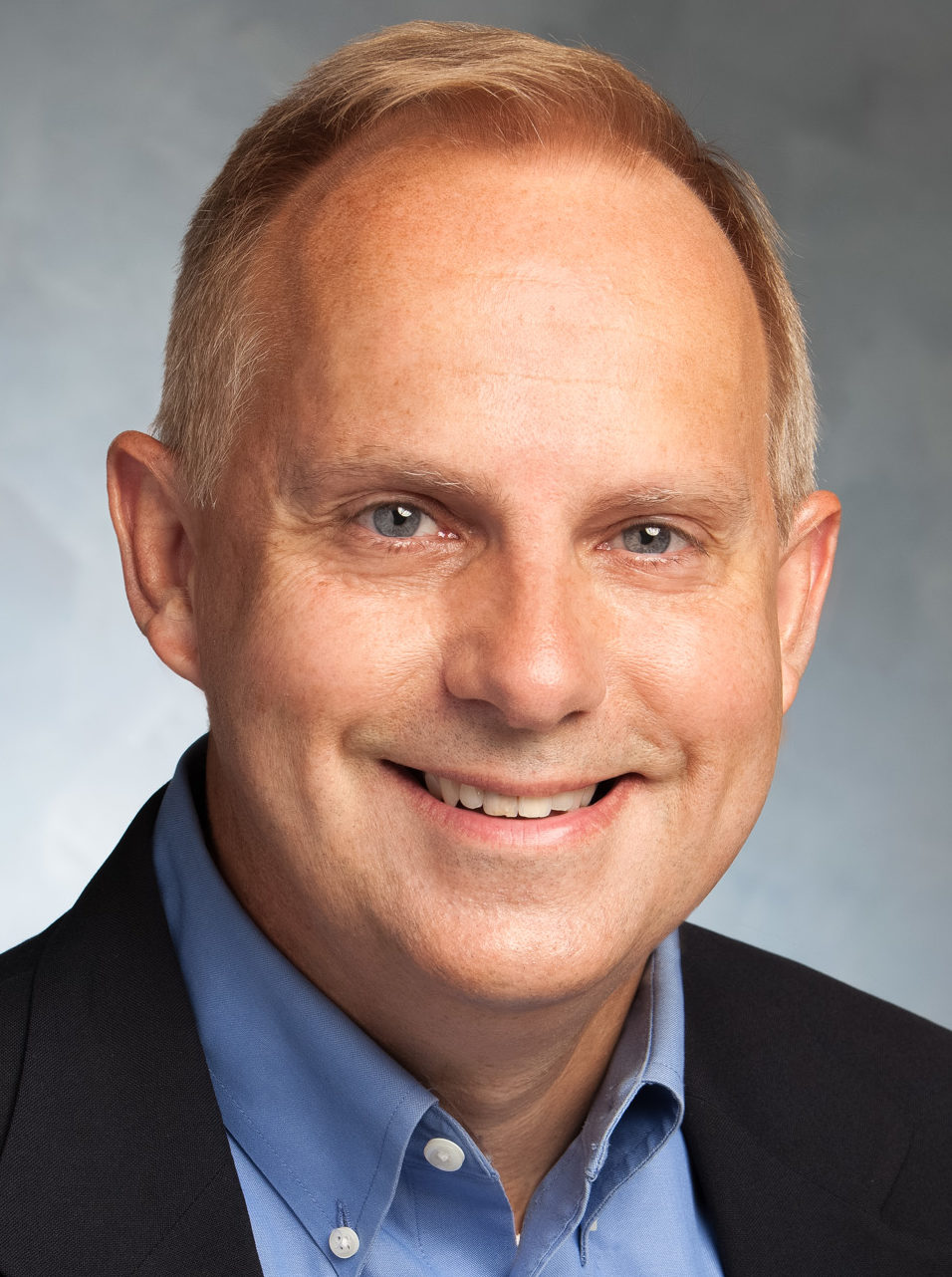
Greg Garrett
Then on my first day back at Baylor after the conference, I found an envelope from Nashville, Tenn., in my mailbox, carefully opened it, and pulled out a sheet of paper with an admonition in 72-point type that Jesus died for my sins, as if someone really thought I needed redemption.
A common opinion I encountered in the negative discourse was this: Our conference was yet another example of “woke Baylor,” with the opiner thus relegating everything we were doing to the categories of unchristian, unimportant and unlikely to change his reality.
“Woke” has long been a word in Black culture signifying an awareness of racism in the society around us, but in recent years, right-wing pundits and politicians have coopted it as one of their code terms to indicate anything they dislike about communities of color.
“’Woke’ has become a curse word dismissing anything that is not white.”
“Woke” has become a curse word dismissing anything that is not white.
Let us consider the indecency of taking a word important to a community and turning it against that community, of using it to dismiss its concerns and the very real threats and prejudice it faces.
Let us consider how it can be employed as a shibboleth to decide whether someone or some institution is worth listening to. If President Biden is woke, then 34% of the country can and will tune him out. If Baylor is woke, then this and any similar gathering can be ignored or insulted, and even biblical concerns about race and justice can be wrongfully dismissed as a tendency toward identity politics or as simple delusion.
I’ve argued before in this space that the facts of racism are more important than the code words used to dismiss it, that white people are called to pay attention to the inequities that undergird this nation, and that just because something makes me or my children uncomfortable, it’s no reason to avoid teaching it — or preaching it.
Thankfully, our speakers over the weekend made a forceful case to a substantial in-person and online audience that it is time for the church to rise and shine, to preach the gospel message of God’s universal love, and to learn from the Black church and other Christian traditions outside the white male mainstream.
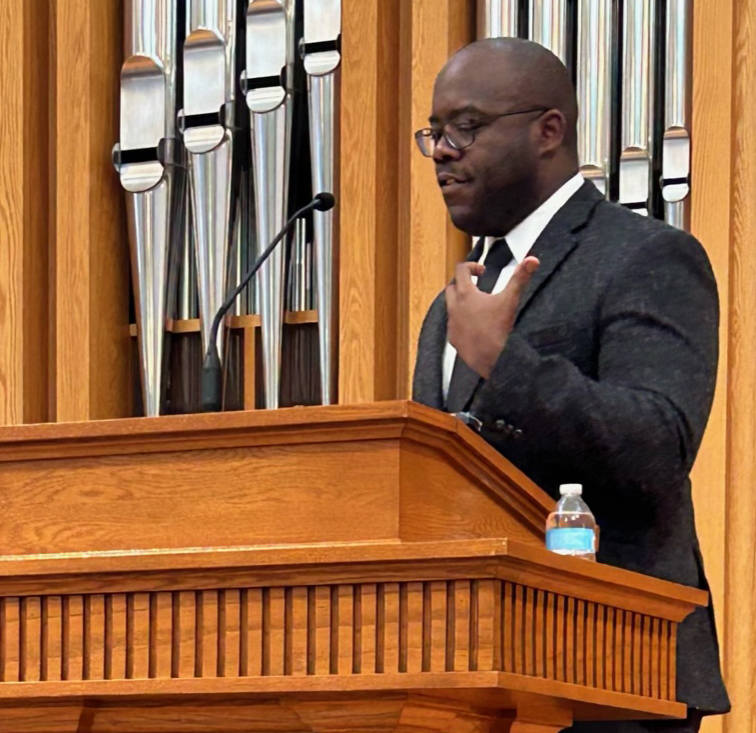
Esau McCaulley
Esau McCaulley, author of Reading While Black, said that broken as it may seem, Christianity points the way to solutions, and he spoke on one of the gifts of the Black church, a faith that reminds of the notion that the Bible calls for both social action and individual redemption. McCaulley told my Baylor colleague Torie Johnson it is “intellectually unserious to deny institutional racism” and described how those decrying wokeness ignore the biblical resumé of God as liberator.
“We’re in a deeply troubling place,” he said. “We’ve been here before. And the same God who carried us through before can carry us through again.”
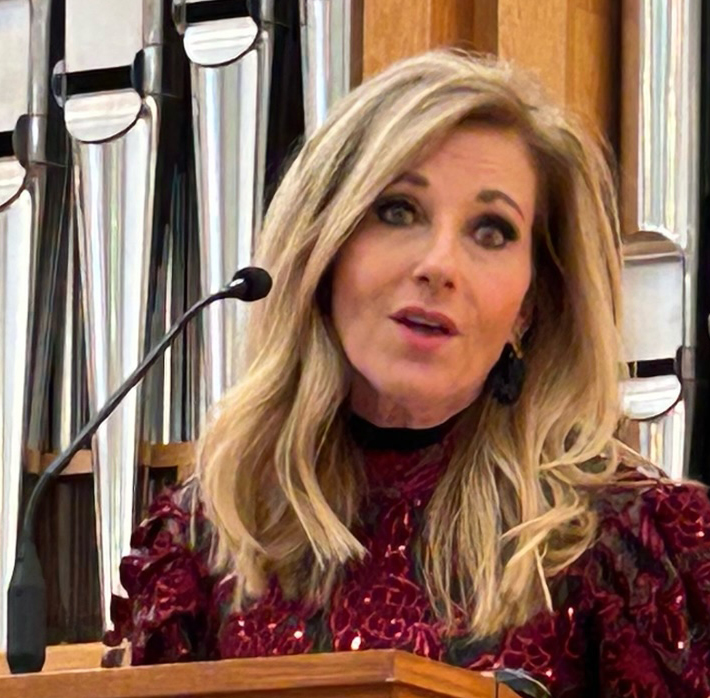
Beth Moore
Beth Moore, struggling though she was with the death of her beloved older brother Wayne, lit up the room and the internet with her willingness to engage her history in the Southern Baptist Convention. She spoke of the power of fear in politics and in American evangelicalism: “Fear was a core value in my home, and has it ever been a value in the white church.”
“White supremacy is so deeply engrained in our culture,” she said, adding that injustice always has worked in favor of people who look like her and me. But the great Bible teacher opened up her Bible and began to preach, from the Gospel of Matthew (“you have neglected the more important things, justice, mercy and faithfulness”), from the Letter of James (“how we treat people matters”), and Galatians, which speaks of our oneness in Christ. Moore told my colleague Todd Still, dean of Truett Seminary, that “if the Magnificat is not speaking of justice, then nothing is,” and reminded her live and virtual audiences, “You have been called to follow Jesus.”
In her honesty about her long journey away from white supremacy, and her biblical attention to the marginalized, Beth Moore reminded us all that, as my friend Kelly Brown Douglas often has said in my presence, the work of anti-racism is gospel work.
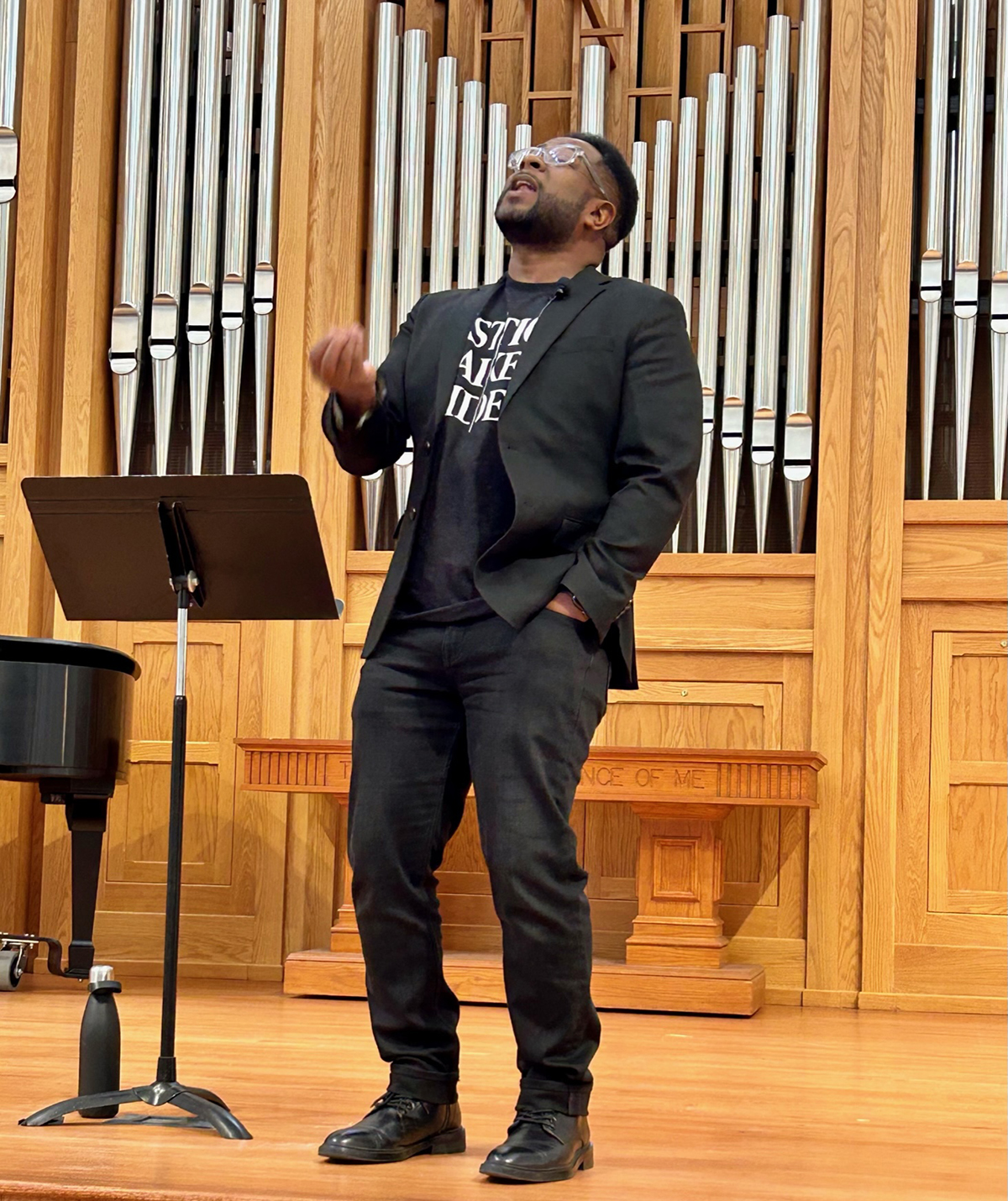
Jemar Tisby
Jemar Tisby, one of my great heroes, was our closing keynote, and he offered us all reminders that this work is hard work: “If you persist in racism justice work in predominantly white spaces long enough, you will either get pushed out, burned out or sell out.”
He reminded us that, nonetheless, it is essential work. He spoke of his understandings of where the American church has fallen short and how Christians might offer repair: Priestly proximity to the marginalized, taking sides for justice, leaning hard into the gospel message all our keynotes stressed: This is what Jesus calls us to do. What are you afraid of?
He also spoke of how those trampled on by white straight Christian males might find their own healing.
“Build your own table,” he argued. “Go where you’re celebrated, not tolerated.” And he encouraged those pushed around by the church or other institutions to “leave loud,” calling them out in the process, and knowing they are right to exit any place they’ve been invited because of how they look but not how they think.
“That’s not unity, it’s uniformity,” he said. “That’s not acceptance, it’s assimilation.”
In his last Sunday sermon, delivered from the pulpit of Washington National Cathedral just before he went to Memphis and his death, Martin Luther King Jr., told the story of Rip Van Winkle. As you may remember, Rip Van Winkle fell asleep a loyal subject of Good King George and woke many years later in the new nation called America. “All too many people,” he said, “find themselves living amid a great period of social change, and yet they fail to develop the new attitudes, the new mental responses that the new situation demands, and they end up sleeping through a revolution.”
King’s sermon, which he called “Remaining Awake Through a Great Revolution,” would have been condemned by many figures today as “woke.” He replayed many of his greatest hits — the “inescapable network of mutuality,” 11:00 a.m. Sunday as “the most segregated hour of America,” the myth of time.
“The work of anti-racism is gospel work.”
And most powerfully, this: “And it may well be that we will have to repent in this generation, not merely for the vitriolic words and the violent actions of the bad people, but for the appalling silence and indifference of the good people. … Human progress never rolls in on the wheels of inevitability. It comes through the tireless efforts and the persistent work of dedicated individuals who are willing to be coworkers with God.”
We chose the provocative title of our program because King called for us to open our eyes, to remain awake, and because the Bible constantly does the same.
It also calls us to love, radically and sacrificially, and my friend Sean Palmer, argued this on our opening day: “The way we treat our neighbors is the way we construct the joys and traumas of life. … The very nature of human existence, at least here in America, is whether or not Christians will truly love their neighbors.”
To be woke is not to be caught up in a cultural confusion or white self-hatred, and to be awake is not to be blinded by some sort of liberal spotlight.
What it means to the planners of the conference, to the speakers, and to those in attendance is simply this: It is time and past time for the church in America to wake up to the reality of injustice, to step out on faith and in love, and to see every person as our neighbor.
It is time and past time to be coworkers with God in the holy work of repair and justice.
Greg Garrett teaches creative writing, film, literature and theology classes at Baylor University. He is the author of two dozen books of fiction, nonfiction, memoir and translation, including the critically acclaimed novels Free Bird, Cycling, Shame and The Prodigal. He is one of America’s leading voices on religion and culture. One of his most recent nonfiction books is In Conversation: Rowan Williams and Greg Garrett. His latest book, A Long, Long Way: Hollywood’s Unfinished Journey from Racism to Reconciliation, is hot off the presses. He is a seminary-trained lay preacher in the Episcopal Church. He lives in Austin with his wife, Jeanie, and their two daughters.
Related articles:
Fear lies at the core of racism in the church and society, Beth Moore tells Truett audience
Failure to love neighbor leads to racism and sexism, Houston pastor tells Baylor conference

